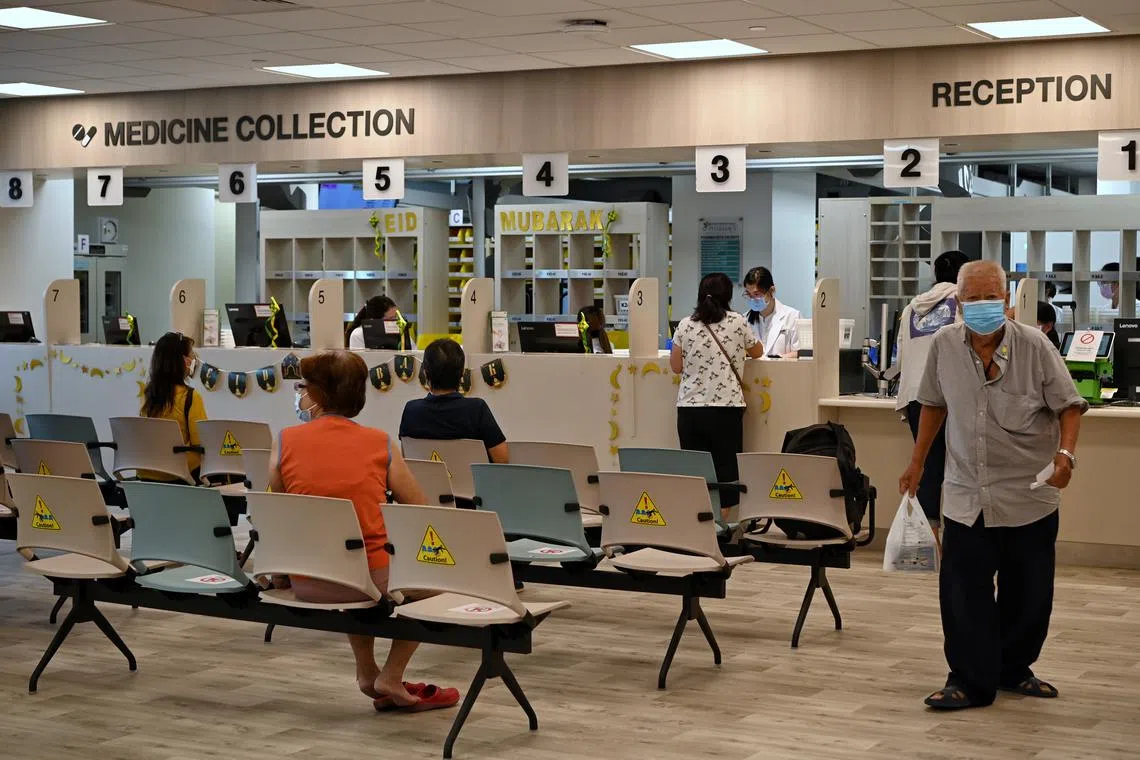askST: How powerful is an MC and how should doctors respond to those who may be faking an illness?
Sign up now: Get tips on how to grow your career and money

Doctors are bound by the Singapore Medical Council’s code of ethics and guidelines to issue patients with MCs on proper medical grounds only.
PHOTO: ST FILE
SINGAPORE – Many companies currently offer 14 days of sick leave a year as long as it is backed by a medical certificate, or MC, from a registered doctor or dentist.
Only a few companies offer employees honour-based medical leave that does not require an MC.
Schools and tertiary institutions, such as the Singapore University of Technology and Design, also require students to substantiate missing school or an exam due to illness with MCs issued by a registered doctor from any private or restructured hospital, government polyclinic or private general practitioner clinic operating in Singapore.
The Health Ministry is tightening rules on the issuance of MCs
1. How powerful is the MC?
Under the Employment Act, employers are required to recognise MCs issued by registered doctors and dentists. The MC entitles employees to paid workdays while on sick leave.
Doctors are bound by the Singapore Medical Council’s code of ethics and guidelines to issue patients with MCs on proper medical grounds only.
An MC represents the doctor’s medical opinion and cannot be invalidated. Companies and schools cannot challenge the legitimacy of an MC, but they can ask for more details from the doctor.
According to the Ministry of Manpower, MCs are valid as long as the worker has been working for the company for more than three months, and he has informed the employer of the sick leave within 48 hours. Otherwise, he is deemed to have gone absent without leave and without a reasonable excuse.
Mr Jasper Toh, principal consultant at HR firm Impact Best, said many companies use human resource management systems to monitor leave and observe trends of attendance. If a trend, such as employees taking sick leave before a long weekend or every Monday, is spotted, employers can conduct an internal inquiry.
2. Under what conditions do I need an MC?
MCs are issued for a specified period that the doctor deems a worker medically unfit to perform duties at work, or a student to attend school or sit an examination, due to illness or injury.
In the past, some companies rewarded employees who did not take sick leave, and people would push themselves to work despite being genuinely sick. This has all changed with the Covid-19 pandemic.
One reason for the MC is to give a sick person adequate time to rest and fight an infection. Staying away from the workplace or school during this time also limits the spread of contagious diseases, such as the common cold, influenza, stomach flu, chickenpox and Covid-19.
Patients may request that MCs be issued for a slightly longer period, which may be granted by the doctor should it be medically reasonable.
3. How should doctors respond to possible malingerers?
Mr Ian Lim, a partner and head of the employment and labour team at TSMP Law, said there has to be “a degree of latitude and discretion accorded to the doctor or dentist” to issue MCs on proper medical grounds.
“And therein lies some of the difficulty in this area,” he added.
There are some ailments that might be difficult for a doctor to fully and accurately diagnose on the spot just based on the patient’s description of symptoms. The doctor may sometimes need to give the patient the benefit of the doubt.
“An example is someone coming in and complaining of migraine headaches. However, if this person comes in every Monday morning saying that he has migraine headaches, then something may be off. This is precisely where doctors are expected to exercise their own judgment and at least recommend further tests for their patients,” Mr Lim said.
Telemedicine, which came to the fore during the Covid-19 pandemic, can make it even harder for doctors to make an accurate diagnosis.
“If it is something that the doctor genuinely can’t assess or make sense of (during a telemedicine consultation), then the doctor should probably ask the patient to come in to be physically examined or sent for further tests,” Mr Lim added.



